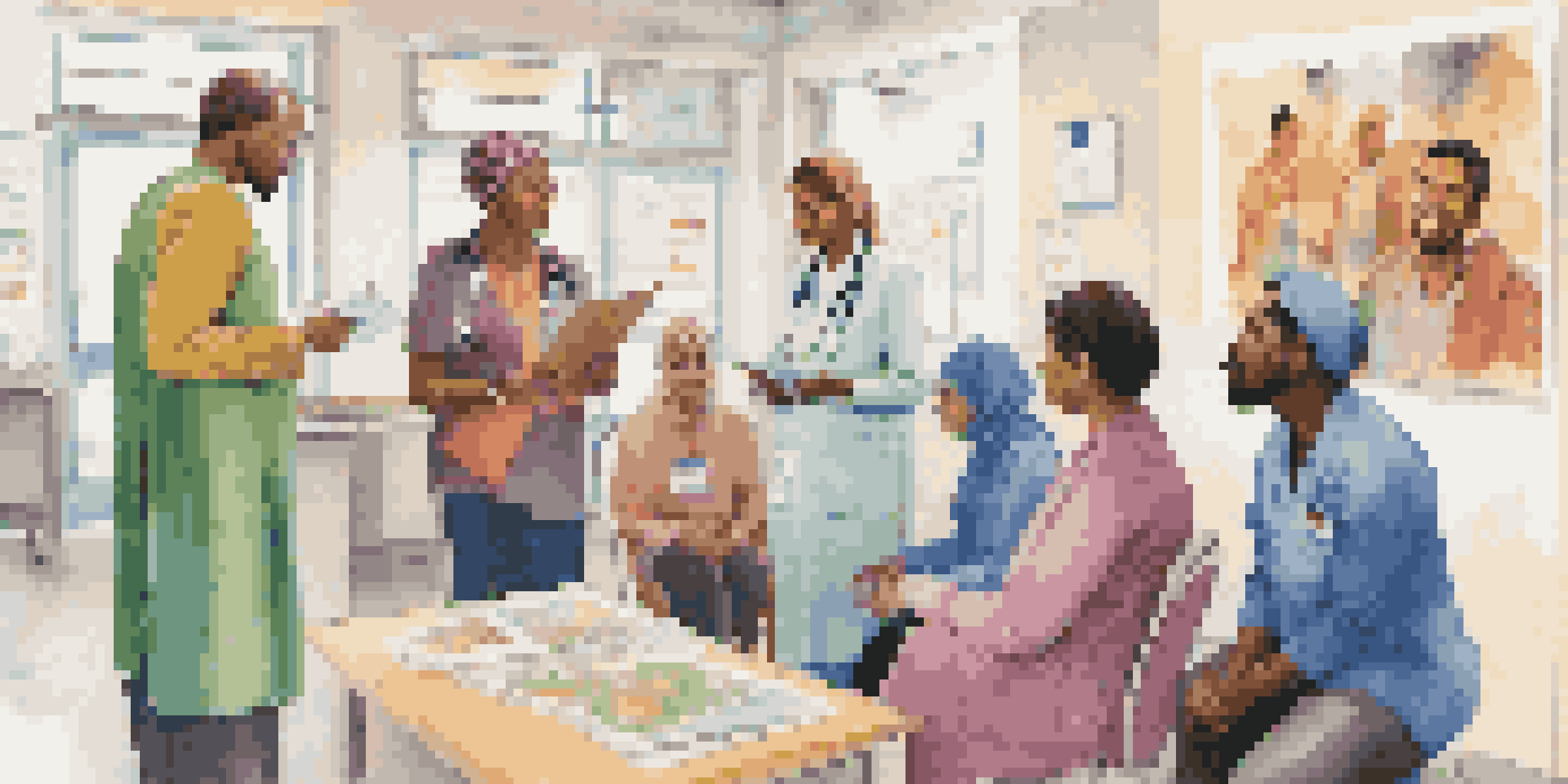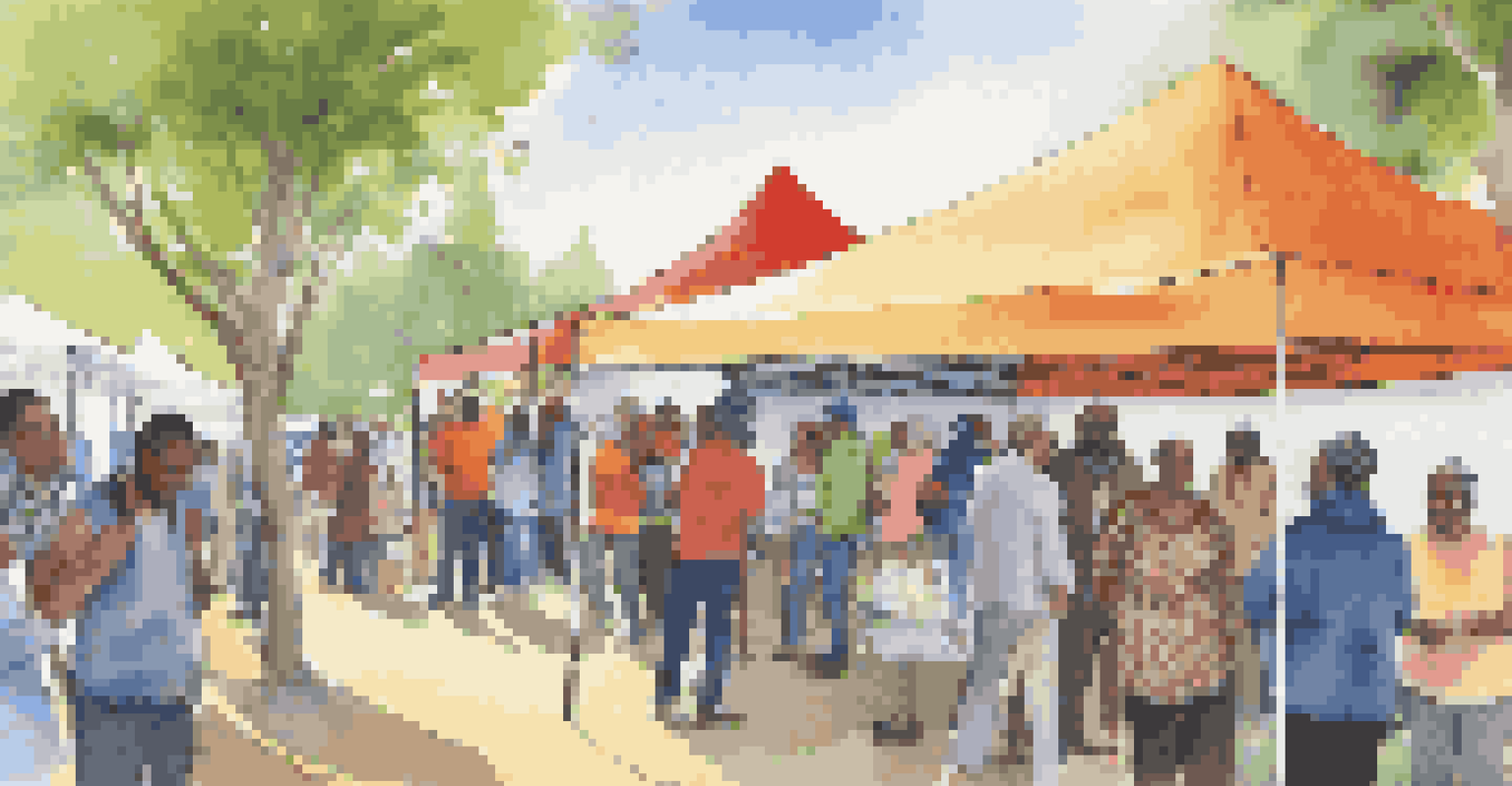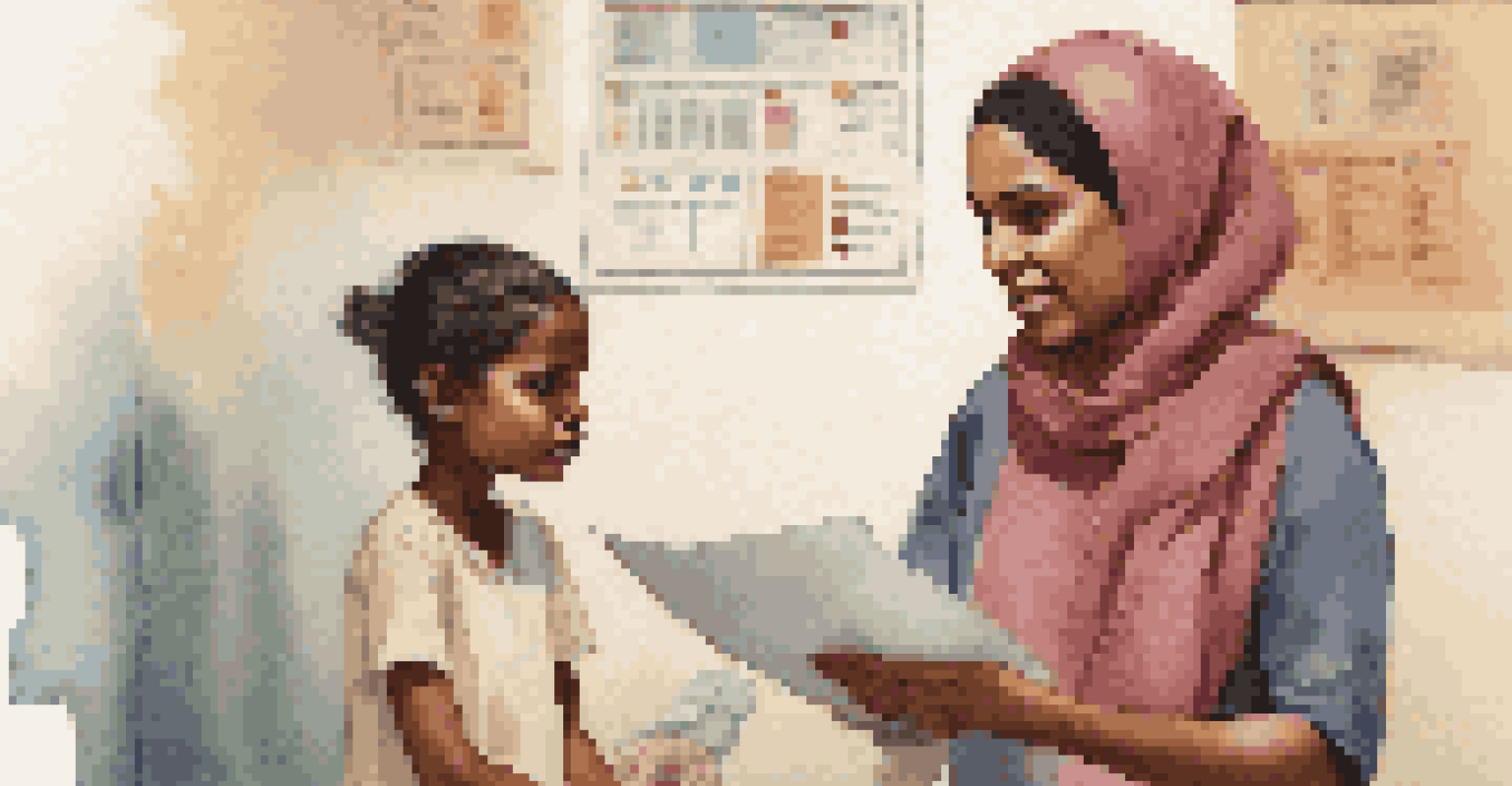Addressing Health Disparities Among Refugee Populations

Understanding Health Disparities in Refugee Populations
Health disparities refer to differences in health outcomes and access to healthcare among different populations. For refugees, these disparities can stem from a variety of factors, including socioeconomic status, cultural barriers, and previous trauma. Understanding these differences is crucial to effectively address the healthcare needs of refugees and to ensure equitable treatment.
Health is a human right, and access to healthcare is essential for all, especially the most vulnerable among us.
Many refugees arrive in their host countries facing significant health challenges, often exacerbated by their past experiences. They may have limited access to healthcare services due to language barriers or lack of information about available resources. This lack of understanding can lead to poor health outcomes, making it vital to grasp the unique context of refugee health disparities.
Moreover, recognizing that health disparities are not just a concern for refugees alone is important. These issues affect entire communities and can strain healthcare systems if not addressed. By focusing on these disparities, we can foster a more inclusive healthcare environment that benefits everyone.
Barriers to Healthcare Access for Refugees
Refugees often face multiple barriers when seeking healthcare services. Language differences can be a major hurdle, preventing effective communication between healthcare providers and patients. Without translators or bilingual staff, refugees may struggle to express their health concerns, leading to misdiagnoses or inadequate treatment.

In addition to language, cultural differences can play a significant role in healthcare access. Practices and beliefs about health may vary widely from one culture to another, which can lead to misunderstandings about the healthcare system. For example, some refugees may prefer traditional remedies over conventional medicine, which can complicate their treatment options.
Health Disparities Impact Refugees
Refugees face significant health disparities due to socioeconomic factors, cultural barriers, and previous trauma.
Economic factors also contribute to these barriers. Many refugees experience financial instability, which can limit their ability to afford healthcare services. This lack of financial resources can deter them from seeking necessary medical care, ultimately worsening their health outcomes.
Mental Health Challenges Faced by Refugees
Mental health is a crucial aspect of overall well-being, yet it is often overlooked in refugee populations. Many refugees have experienced traumatic events, including war, violence, and loss, which can lead to conditions such as PTSD, anxiety, and depression. Addressing these mental health issues is essential for improving their quality of life.
The greatest weapon against stress is our ability to choose one thought over another.
Unfortunately, stigma surrounding mental health can deter refugees from seeking help. In many cultures, discussing mental health issues is considered taboo, leading individuals to suffer in silence. Raising awareness and providing culturally sensitive mental health resources can help break down these barriers and encourage refugees to seek support.
Additionally, integrating mental health services into primary healthcare can be an effective way to address these challenges. By normalizing mental health care and making it more accessible, refugees can receive the comprehensive support they need to heal and thrive.
Cultural Competency in Healthcare Delivery
Cultural competency is essential for healthcare providers working with refugee populations. It involves understanding and respecting different cultural beliefs and practices, which can significantly improve patient-provider relationships. When healthcare professionals approach refugees with empathy and cultural awareness, it fosters trust and encourages individuals to seek care.
Training healthcare providers in cultural competency can help them recognize and address the unique needs of refugees. This training can include language assistance, understanding cultural health practices, and recognizing signs of trauma. By equipping providers with these skills, we can enhance the quality of care for refugees.
Barriers to Healthcare Access
Language differences, cultural misunderstandings, and economic instability create multiple barriers for refugees seeking healthcare services.
Ultimately, cultural competency not only benefits refugees but also enriches the healthcare system as a whole. By embracing diversity and understanding different perspectives, healthcare providers can create a more inclusive and effective healthcare environment for everyone.
The Role of Community Organizations in Support
Community organizations play a pivotal role in supporting refugees as they navigate healthcare systems. These organizations often provide essential resources, such as language classes, health education, and access to healthcare services. By bridging the gap between refugees and healthcare providers, community organizations help ensure that refugees receive the care they need.
Moreover, these organizations often employ staff who share similar backgrounds with refugees, which can enhance communication and trust. When refugees see familiar faces and hear languages they understand, they are more likely to engage with the healthcare system. This culturally informed support can lead to better health outcomes and integration into the community.
Collaboration between healthcare providers and community organizations is key to addressing health disparities. By working together, they can create comprehensive programs that address the unique needs of refugees, ultimately improving their overall health and well-being.
Advocacy for Policy Change and Resources
Advocacy is crucial for addressing health disparities among refugee populations. By raising awareness about the unique challenges refugees face, advocates can influence policy changes that improve access to healthcare. These changes can include increasing funding for refugee health programs or creating policies that ensure healthcare equity.
Engaging local and national policymakers is vital for creating sustainable solutions. Advocates can share data and personal stories that highlight the urgent need for change, making the case for targeted resources and support. This grassroots approach not only elevates the voices of refugees but also fosters a sense of community involvement.
Community Support is Essential
Community organizations play a crucial role in bridging the gap between refugees and healthcare, enhancing access and trust.
Ultimately, sustained advocacy efforts can lead to significant improvements in the health and well-being of refugees. By pushing for systemic changes, we can create a more equitable healthcare landscape that benefits all members of society.
Future Directions in Addressing Refugee Health Disparities
Looking ahead, addressing health disparities among refugee populations requires a multifaceted approach. This includes continued research to better understand the specific health needs of refugees and the barriers they face. Gathering data on health outcomes can inform strategies and policies aimed at improving care.
Collaboration among various stakeholders is also essential. By bringing together healthcare providers, community organizations, policymakers, and refugees themselves, we can create comprehensive solutions that address the root causes of health disparities. This collaborative effort can lead to innovative programs that are responsive to the needs of refugees.

As we strive for health equity, it is important to remember that our work is ongoing. By remaining committed to understanding and addressing the health disparities faced by refugees, we can ensure that everyone has the opportunity to achieve optimal health and well-being.